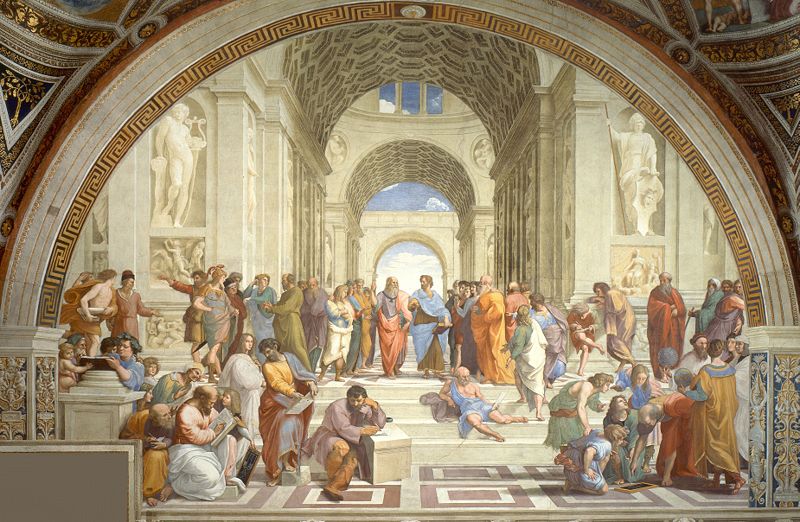CONTENT WARNING: Discussion of transphobia
Politics, an art of interaction, will always be influenced by the platform on which it is conducted. The debut of democracy in Ancient Greece saw a radically different political system to the one we engage with today. The very physical platform on which politics took place influenced how decisions were made. Standing in an assembly of other Athenian men to vote on policy, you would have seen your friends raise their hands in support of a proposition. After this visible display, who knows if your decision to support or not is the same as it would have been if you’d voted in a secret ballot?
In aristocratic and monarchical governments, the limited circulation of political information and decision-making influenced how policy was formed. In communist and fascist societies, the constant political discourse at a community level influenced the thoughts and feelings of the population when it came to make political decisions. In each case, it wasn’t just the government but the arena in which politics was conducted that influenced decisions.
In modern democracy the platform for politics is the internet. Information is not circulated within small communities; letters from government are few and far between, and a citizen would count themselves lucky to have met their representative. Instead, we have access to a vast network of political information, government policy, opinion and analysis. It is easier than ever to be political informed and yet political discourse is, more so than ever, stagnant and aggressively partisan.
One of the reasons for this is that social media politics resembles something like the Athenian ecclesia. Standing in the field, you see the hands of everyone around you. Similarly on Facebook and Twitter you see the opinions of others before you can form your own. Political information is vast, but opinion is orders of magnitude vaster. Social media is more than the ecclesia though; it is the field, organised such that your closest friends and those you share the most opinions with are standing as close to you as possible. As such, even if you haven’t formed an opinion on a new issue, you will be likely to follow the lead of those around you who have agreed with you in the past.
The enclosure of you and your similarly-leaning friends within a social media network leads to the formation of an epistemic bubble; an unintentional ‘echo chamber’ which obscures alternative opinions from your view and reinforces your prior leanings. Politics thrives on the back-and-forth between people with different views. Ideally, this leads to some exchange of views, some moderation. But when conversations are locked within one camp or the other, this doesn’t happen, and the only outcome of political discourse is a strengthening of prior convictions.
When content from the other side comes in through the walls of your epistemic bubble, it is only the most outrageous, straw-manned content used to destroy the opponent’s viewpoint. Case in point: a younger friend who expressed distaste for the view that “you can be whatever gender you want these days… you can be a carrot, or an animal, how ridiculous is that?”. Social media boosts these posts more than others because they are outrageous and attract more clicks than others. The failure of legitimate and representative political arguments to make it through to both sides of an issue is a huge problem for political discourse; essentially, it means that neither side of the argument really knows what the other is thinking.
Finally, and possibly even more importantly, social media politics has given rise to a new form of humour that erodes certainty in political information both on the part of the recipient and the creator. Ironic, deep ironic and post-ironic memes and political pages present a quandary to viewers unsure whether the creators are serious, joking or somewhere in between. If they are joking, these jokes can spiral out of control when viewers don’t understand the context, and I think that even the admins can condition themselves to believe their own extreme content. For reference I point to banned page ‘Abhorrent Australian Memes’, one of a suite of alt-right meme pages that use particular branding to make aggressive partisan political statements in the guise of ironic humour. The defence that “it’s just a joke” will not cut it any more.
Politics will always have systemic flaws. No method of communication, no instrument of democracy will ever perfectly capture the ideals of government by the people, for the people. However, understanding the platform on which it is conducted is important when entering any political conversation. Self-awareness and awareness of how others might be thinking and acting in a political space is necessary to engage in productive discourse. Above all, that is what we should be seeking.
We acknowledge the Ngunnawal and Ngambri people, who are the Traditional Custodians of the land on which Woroni, Woroni Radio and Woroni TV are created, edited, published, printed and distributed. We pay our respects to Elders past and present. We acknowledge that the name Woroni was taken from the Wadi Wadi Nation without permission, and we are striving to do better for future reconciliation.
